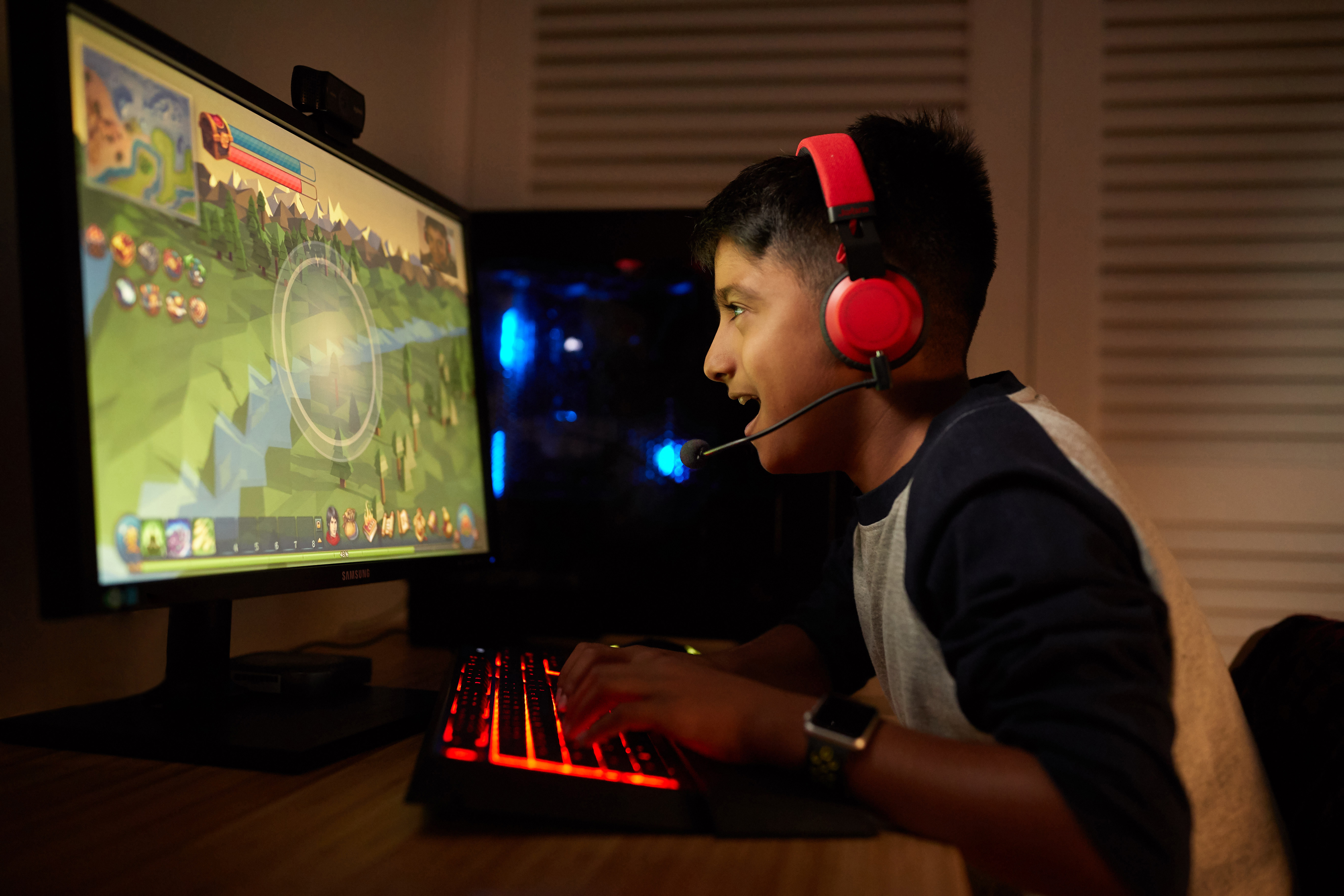This blog was written by Jessica Brookes.
When I was child, gaming was all joysticks and arcades. Now, it’s all about hyper realistic graphics, immersive experience and above all, playing online against players from all over the world.
Since the early 2000s, we’ve seen online gaming grow into a worldwide phenomenon, increasing hugely in popularity among children and adults alike and expanding from consoles and PCs to mobile phones and tablets.
A 2017 study by Newzoo found that approximately 32.4m people in the UK play games, that’s almost half the population. These findings are in line with the findings of a GameTrack (ISFE & Ipsos Connect) survey which highlights a rise in gaming among older generations in the European market (UK, Germany, France and Spain). According to the report, the number of 35-44 year old gamers increased from 36% to 46% between 2012-2016. In the same timeframe, gaming among 45-64 year olds rose from 21% to 27%. Clearly gaming is no longer just for teenage boys.
However, while the evolution of online gaming has led to an enhanced multiplayer experience for players, it has also contributed to a worrying rise in “virtual crime” – real-world criminal activities that are committed through massively multiplayer online games (MMOGs), including hacking, fraud and child grooming.
With these dangers in mind, here are the key areas to look out for when gaming online and some helpful tips on how to keep your family safe. Ready player one?
Be anonymous
McAfee research has shown that 60% of parents worry about cybercriminals hacking personal or financial information from their children’s accounts. With gaming, online ID profiles can often contribute to this problem for children and adults alike. To play online, players are required to create a user profile so that they can access the appropriate console/computer network. As user handles are public, you should avoid displaying personal information which could potentially be used by hackers i.e. name, address, date of birth, email addresses. Players should also avoid using this type of information when creating account passwords as these networks could be susceptible to hacking. Passwords should be unique, complex and should never be shared with other users.
Careful who you chat to
Online games frequently have built-in messenger services to allow players to contact each other. McAfee research has shown that 62% of kids play games where they speak to other people. If your child participates in online gaming, make sure that they are aware of the associated risks of chat rooms such as interacting with strangers and sharing personal details. These threats can be effectively prevented by using the console’s or PC’s internal parental control settings to disable messaging services and blocking access to the internal network store. Another top tip is to avoid opening instant messages with attached files or links and never share online player account details such as passwords and payment details with unauthorised sources.
Something phish-y
According to McAfee’s latest research, 58% of parents worry about kids clicking on links that might lead to malware. With online gaming, the threat of this danger is high as modern games often encourage players to purchase exclusive in-game content with real-money via virtual online stores. To cut costs, players (usually younger gamers) are often tempted to download patches/packages from unauthorised users which claim to grant access to this content. These actions can often lead to major security risks. Please be aware that downloading content using unverified channels could lead to your console/device becoming infected by viruses or spyware. Always check the authenticity of downloads and take care what you open.
Get protected
Although leading games consoles are largely insulated from virus/malware threats, online PC and mobile games are highly at risk to these threats. When gaming online, make sure you have effective and updated antivirus/anti-spyware software and a firewall running to stop malicious programs from infecting your device.
As the recent success of massive multiplayer games and the rise of eSports have demonstrated, the online gaming bubble shows no signs of bursting anytime soon. Gaming looks set to continue evolving in exciting ways and remain a favourite pastime of people of all ages for the foreseeable future. According to McAfee, it might even help millennials forge careers in cyber security.
Nevertheless, as modern games continue to push the boundaries of the multiplayer experience and criminals/hackers become increasingly more innovative in running scams to exploit them, it is more important than ever to ensure that you keep your devices safe and protected when gaming online.
Our award-winning Secure Home Security products are a clear example of how vendors like us are adapting our solutions to encompass all areas of a user’s home life on the digital plane, from work to entertainment. Please check out the McAfee Home blog for further updates etc.













